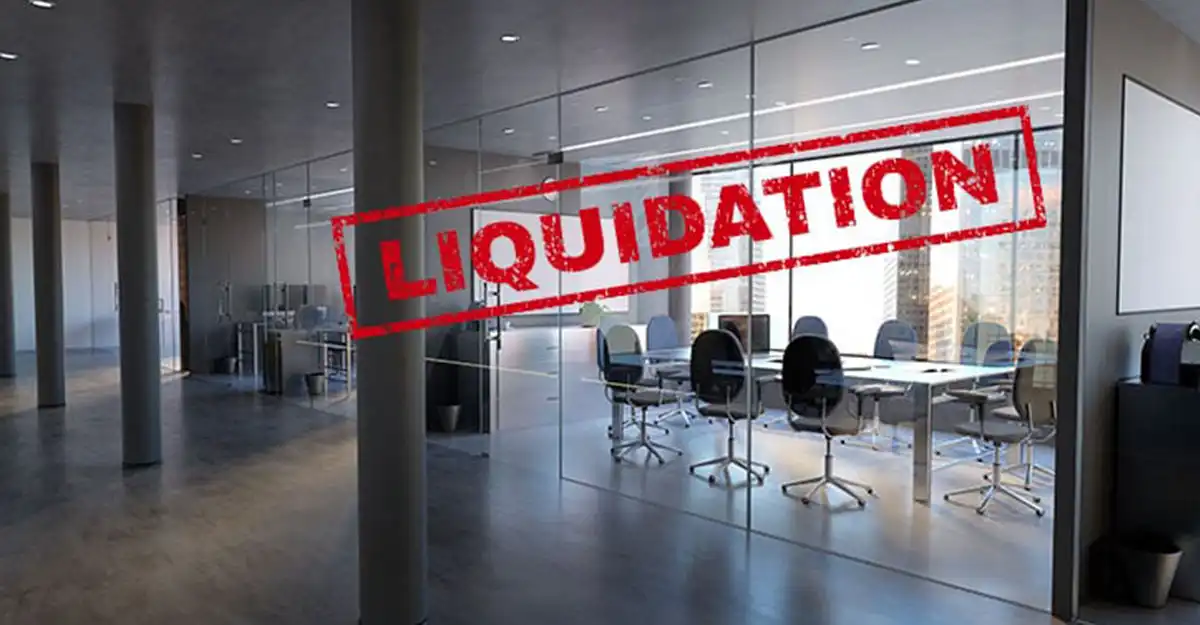Liquidation or dissolution is a term which is used when a company decides to dissolve and materialize all its assets. This usually occurs when the company is deemed insolvent, i.e. cannot pay its debts when they are due. As a result, it collects and materialises its assets to settle its obligations and eventually comes to an end.
The liquidation (dissolution) or wound-up method can be either voluntary or compulsory. The Board of Directors must select the most suitable mechanism for the dissolution of a company, depending on the circumstances. The Companies Law, Cap. 113 regulates the procedures and requirements for the liquidation of Cyprus companies.
Voluntary Liquidation
Article 261 of the Companies Law, Cap. 113, outlines the circumstances in which a company may be liquidated voluntarily, namely:
- when the period of the company’s duration, if any, (set by the articles of association of a company) expires; or
- when a particular event occurs, the occurrence of which was set in the articles of association to mean the dissolution of the company;
- when a company votes by special resolution its voluntary liquidation;
- when a company votes by extraordinary resolution that, due to its obligations, it may not continue operating and liquidation is advisable.
Article 262(1) provides for the notice of resolution for voluntary liquidation after a company has approved it. The company must deliver a copy of such notice to the Registrar of Companies within 15 days from its approval. The Registrar of Companies proceeds to its registration and arranges for its publication in the Official Gazette of the Republic. The voluntary liquidation date of commencement is considered to be the date of approval of the relevant resolution.
Voluntary liquidation can be made either by the members of the company or by its creditors. Different requirements apply for each case.
1. Voluntary Liquidation by Members
One or more members of a company may decide to dissolve it voluntarily, considering that they are solvent shareholders. The directors must make a statutory declaration that the company can pay its debts within 12 months from the commencement of the procedure.
The Solvency Declaration must be accompanied by a Statement of Assets and Liabilities up to the date of the declaration. The company members arrange a general meeting to pass a special resolution declaring the voluntary liquidation and appointing a liquidator. The appointed liquidator must check and collect the company’s assets to be realized and paid to the creditors.
Any surplus is returned to the shareholders. In the final general meeting, the liquidator submits to the company members the final liquidation accounts and explains their conduct. The accounts must also be submitted to the Registrar of Companies.
The company is dissolved within 3 months from the filing of the returns.
The directors must prepare the following documents and present them during the meeting:
- Audited financial statements which are relevant to the liquidation date;
- A solvency statement confirming that the company can pay all its debts;
- A written resolution approving the solvency statement.
2. Voluntary Liquidation by Creditors
When a company is insolvent, i.e. cannot pay its liabilities, it can only proceed with a voluntary liquidation by its creditors.
Both the members and the creditors must hold a meeting to decide upon the appointment of one or more liquidators. The creditors may also appoint an inspection committee if deemed appropriate. The liquidators shall arrange for the liquidation of the company’s affairs, and then send notices for the final meetings.
Finally, the liquidators submit the Final Liquidation Account which will lead to the dissolution of the company.
The company directors must prepare the following documents prior to the meeting:
- A statement of their position on the company’s affairs;
- A list of the creditors and an estimated amount of their claims;
Furthermore, they must send a notice simultaneously to both the creditors and the shareholders. Such notices of the meeting must also be published in the Official Gazette and at least 2 local newspapers.
If coronavirus stress has forced your company into financial discomfort, a legal expert in Cyprus can analyze all possible choices you may have. From restructuring processes including administration, through to closure considerations such as company liquidation in case the prospect of recovery is reduced.
Compulsory Liquidation (By Court)
A creditor, a contributor or any other interested party can file an application to the court for the company’s liquidation. Subsequently, the court will issue an order to that effect.
According to Article 211 of the Companies Law, a company may be wound up by Court in the following circumstance:
- the company has decided by special resolution for its liquidation by the Court;
- the company failed to submit the statutory report to the Registrar of Companies or to hold the statutory meeting;
- the company does not commence its business within a year from its incorporation or suspends its business for a year;
- in case of a public company, the number of members is reduced below 7 and either it declares inability to increase the number or is unable to increase it within the time given by the Court;
- the company is unable to pay its debts;
- the Court believes that it is fair and in accordance with the law of leniency to dissolve the company.
Other grounds include a request for the court to exercise its discretionary powers, where it is just and equitable. Furthermore, where a European company (SE) fails to provide a remedy under Article 64 of Regulation (EC) no. 2157/2001.
The Court appoints a Liquidator, who must act in accordance with a Statement of Affairs, prepared and submitted by the company’s directors. The document includes the company’s affairs, such as details of its assets and liabilities, creditors’ details, securities and other information.
The liquidator follows the same steps as in a voluntary liquidation: locate the assets to be materialised for the payment of the fees and expenses, preferential debts and secured and unsecured creditors. The liquidator must prepare statements of receipts and payments on a six-monthly basis. Such statements must contain information about the accounts of the procedure, and be submitted to the Registrar of Companies.
Strike-Off Companies Register
Strike-Off The Companies’ Registry is an alternative way to dissolve a company.
It applies to dormant companies or those who have ceased to operate and have no assets, nor do they intend to pursue their business activities in the future.
The strike-off is an administrative procedure which takes effect from a notice sent by the Registrar of Companies to the company in question or vice versa. In effect, this method is used when the Registrar of Companies is satisfied that the company in question is no longer active and has no assets.
The company must fulfil all its statutory obligations and settle its affairs:
- close all bank accounts worldwide,
- de-register from the VAT services, and
- obtain a Tax Clearance Certificate from the Tax Department.
The registered owners of the business bank accounts must contact the bank institutions and request their closure. Similarly, they can request the de-registration of their company name from the VAT. Once the shareholders have paid off all the pending taxes, they receive a Tax Clearance Certificate from the Tax Department.
The liquidation or wound-up method can be either voluntary or compulsory. The Board of Directors must select the most suitable mechanism for the dissolution of a company, depending on the circumstances.
Comparisons of dissolution processes in Cyprus
Voluntary liquidation is a more complex and costly method than compulsory liquidation. It takes about 12 months or more to complete and there is a requirement to appoint one or more liquidators.
On the other hand, the strike-off method is the easiest and cheapest method. There is no need to appoint any liquidators and takes 4-9 months to complete.
The law imposes greater control on court-based compulsory liquidations (i.e. the requirement to periodic filings), contrary to voluntary ones.
Restoration
A liquidated company can be restored after a petition from any of its members or creditors. The application must be filed to the court within 20 years from the publication of the liquidation notice. The Registrar of Companies sets out several conditions which must be satisfied for a company to be restored. These include submission of all pending financial statements, audited accounts, annual returns, and payment of any pending company levies. If successful, the court issues an order restoring the name of the company in the same position before its liquidation. The Registrar of Companies must receive a copy of the court order.
Summarizing
Unfortunately a great number of companies have endured incomparable challenges during the Covid-19 pandemic. These challenges may have pushed their business to a breaking point.
While the financial help given by the government to relieve the impact of Covid-19 to businesses, sometimes this cannot be enough to keep them operational. If Covid-19 has led you to consider whether liquidation is the only viable next step for your company, it is crucial you look for assistance of legal experts.
Our team of lawyers can help you through your options if you need to liquidate your company. Feel free to contact us at info@chambers.law




